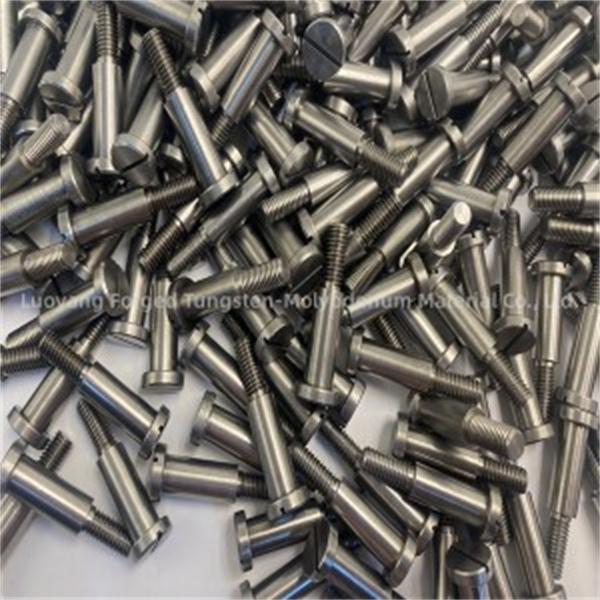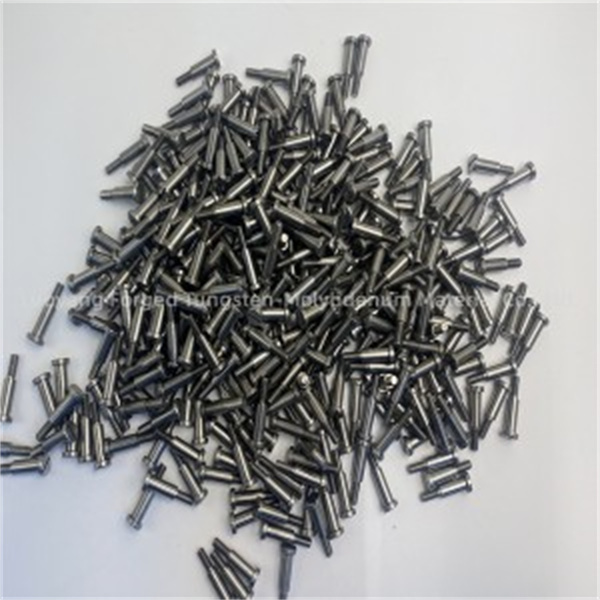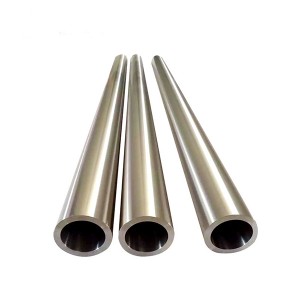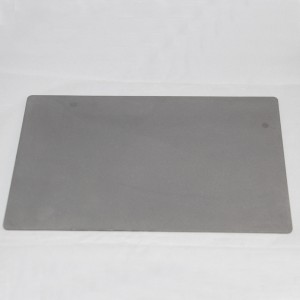High temperature and high pressure resistance Tungsten screw bolt
Bolts used in high temperature applications need to be able to withstand high temperatures without losing their mechanical properties or integrity. Several types of bolts and fasteners are designed for high temperature environments, including:
1. Alloy Steel Bolts: Bolts made of alloy steel, such as ASTM A193 Grade B7, are suitable for high temperature applications. These bolts are heat treated to provide good strength and creep resistance at high temperatures.
2. Stainless steel bolts: Certain grades of stainless steel, such as 310 stainless steel, are known for their resistance to high temperatures. These bolts have good oxidation resistance and retain their strength at high temperatures.
3. Inconel bolts: Inconel is a family of nickel-chromium-based high-temperature alloys known for its excellent high-temperature strength and oxidation resistance. Inconel bolts are suitable for use in extreme temperature environments such as gas turbine and aerospace applications.
4. Titanium bolts: Titanium and titanium alloy bolts are light in weight and have good strength at high temperatures. They are commonly used in aerospace and chemical processing applications where high temperature resistance is required.
5. Refractory metal bolts: Bolts made of refractory metals such as molybdenum, tantalum, and niobium are suitable for extremely high temperature environments, such as vacuum furnaces and semiconductor manufacturing.
When selecting bolts for high temperature applications, it is important to consider the specific temperature range, environmental conditions and mechanical requirements of the application. Additionally, proper installation and fastener design considerations are critical to ensuring long-term performance and reliability of bolts in high-temperature environments.

Yes, temperature can significantly affect the tensile strength of a material. In many cases, the tensile strength of materials decreases as temperature increases. This phenomenon is particularly evident in metals and alloys, but it also applies to other materials.
The effect of temperature on tensile strength is influenced by a variety of factors, including the material's composition, microstructure, and the presence of alloying elements. Here are some key points to consider:
1. Ductile Materials: Many ductile materials, such as carbon steel, lose tensile strength as the temperature increases. This is due to the increased mobility of dislocations within the material's crystal lattice at higher temperatures, which can lead to greater susceptibility to deformation and reduced strength.
2. Brittle materials: Certain materials, particularly certain alloys and ceramics, may exhibit more complex behavior with temperature. For example, some brittle materials may experience an increase in tensile strength at elevated temperatures due to changes in the material's fracture behavior.
3. High temperature alloys: Certain high temperature alloys, such as those used in aerospace and power generation applications, are specifically designed to maintain their tensile strength at high temperatures. These alloys are engineered to resist softening and maintain their mechanical properties in high temperature environments.
4. Creep: In addition to having a direct impact on tensile strength, high temperatures can also cause creep, which is the gradual deformation of materials under constant load. Creep can further reduce the material's effective tensile strength over time at elevated temperatures.
It is important to note that the specific behavior of a material's tensile strength as a function of temperature depends on its composition, processing, and intended application. When designing components for use in high-temperature environments, it is critical to consider the potential effect of temperature on the tensile strength of the materials used.
In summary, while the tensile strength of a material can be affected by temperature, the exact nature of this effect depends on the material and its specific properties. Understanding how materials behave under different temperature conditions is critical for the reliable operation of engineered components in high-temperature applications.

Wechat:15138768150
WhatsApp: +86 15236256690
E-mail : jiajia@forgedmoly.com








